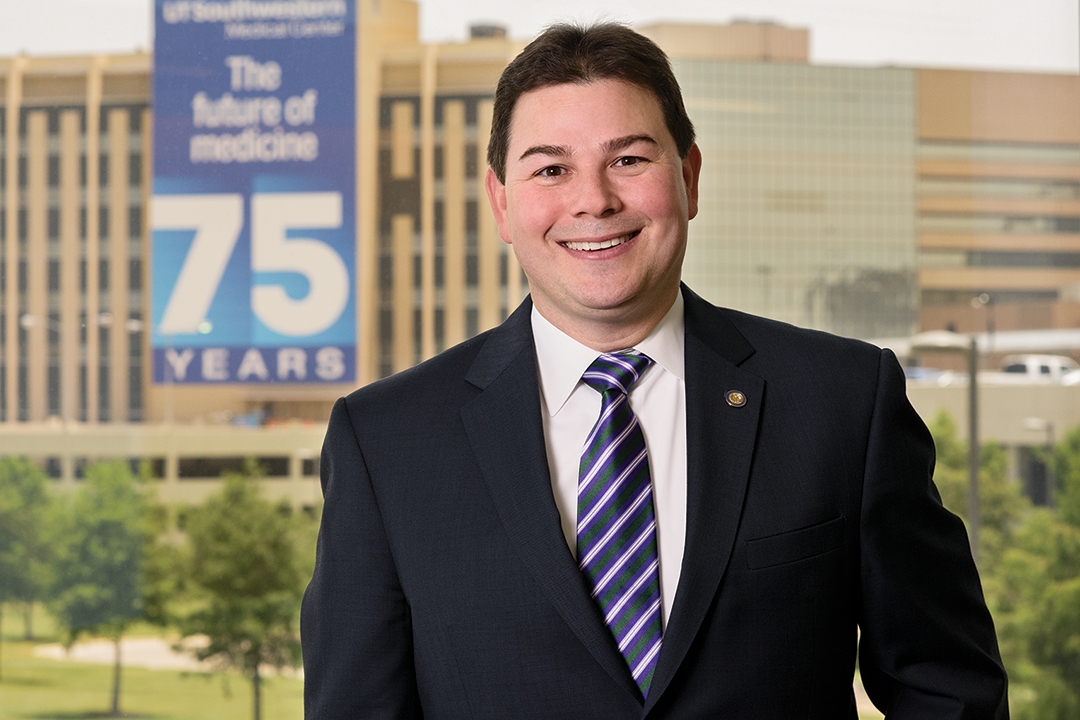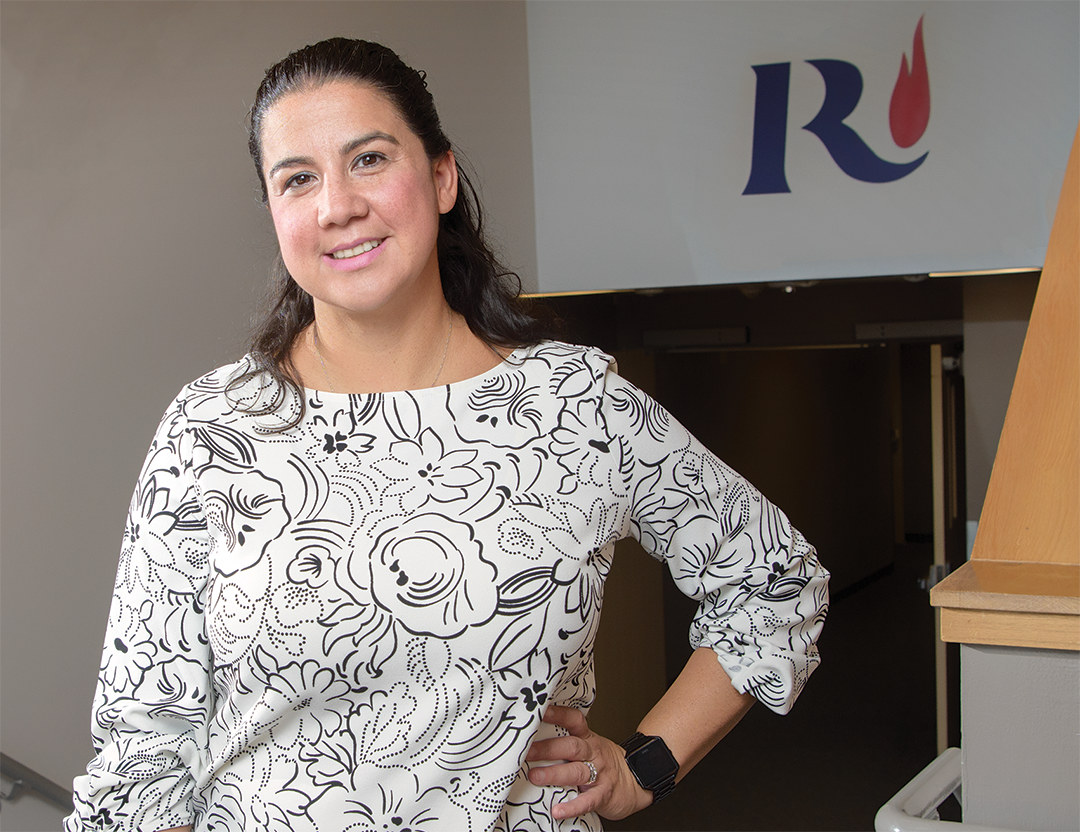But then you see the grin. And the socks. And the lapel pin.
"Every day, there's a theme with the socks and pins," says Goddard, who just last year brought his jovial, outsized presence to the role of Red Oak ISD superintendent. "It's some serious pressure."
At first glance, today's motif isn't obvious -- he's wearing a Kermit the Frog pin and socks emblazoned with a grassy soccer field. But upon closer inspection, the connection is clear: Goddard means green.
He may have played football at SFA, but he says it was at UNT where he tackled his toughest, most rewarding experiences. He first enrolled in the College of Education to pursue a master's degree in counseling before earning a doctorate in educational leadership and administration.
"I never believed I would be able to finish," Goddard says. "But I had professors, like Jack Baier, who believed in me, encouraged me. I had this built-in mentoring all the way through the program."
That's a hallmark of the College of Education: providing the kind of rigorous instruction, real-world experiences and one-on-one support that allow its graduates to seamlessly transition into the classroom -- or out of it. The college's alums achieve not only flexibility but success as they carve their own career paths, moving between roles such as teacher, administrator, department coordinator or policy influencer -- and making measurable differences in students' lives.
It's no surprise when you consider the college is the cornerstone on which UNT was built, tracing its roots to the 1890 founding of the Texas Normal College and Teacher Training Institute. Since then, the College of Education -- whose online graduate education programs are ranked first in Texas and fourth in the nation by U.S. News & World Report -- has firmly established itself as a leader in educating educators.
"Every job I've had in education," Goddard says, "I've used what I learned at UNT."


